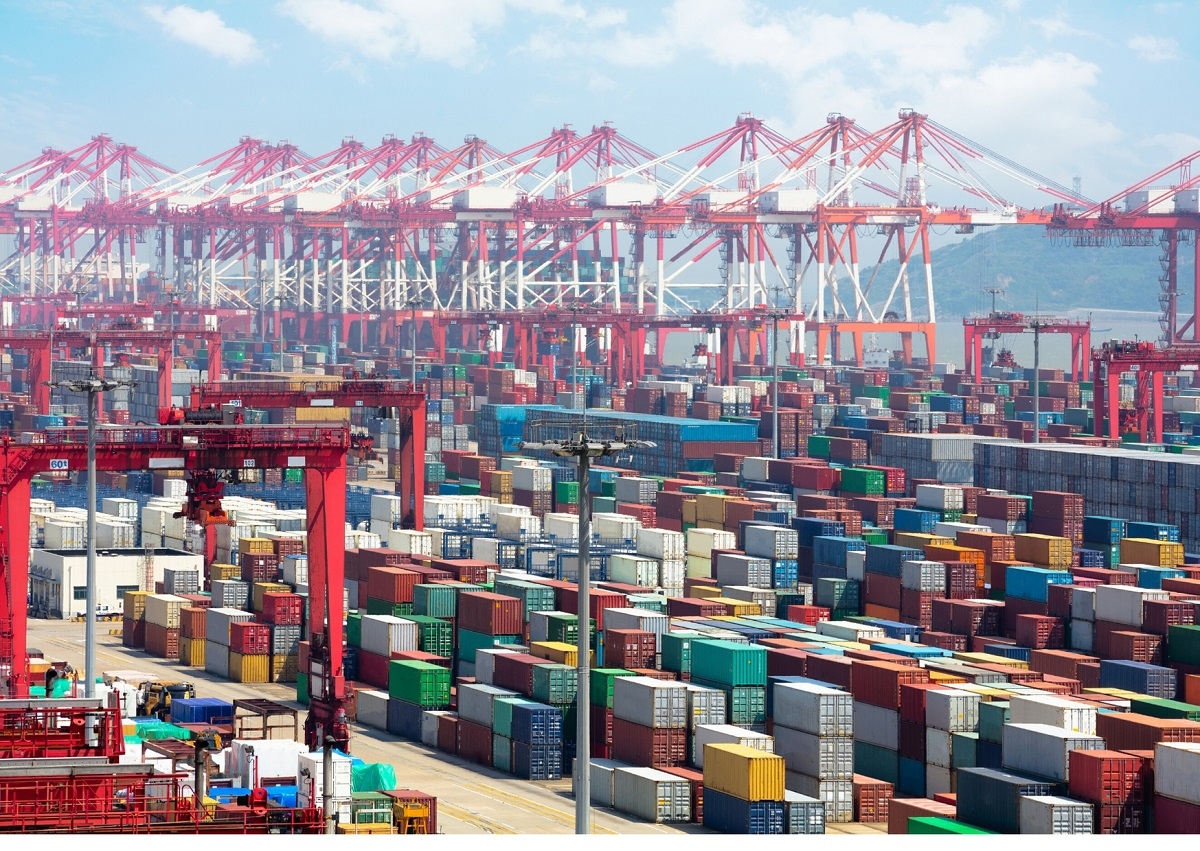[WEBCAST]: From Optimization to Resilience: Global Supply Chains After Covid-19
VIEW EVENT DETAILSHow Governments and Companies Will Organize Their Future Supply Chains

Shanghai container terminal. Photo on Canva
One of the most transforming effects on the world economy for the past 30 years has been the creation of finely tuned supply chains. In a highly efficient manner, components often cross borders several times before they are assembled and sold to the end customer. «Designed in California, Assembled in China» has become the norm in today’s world. Supply chains were ever more optimized, while companies were able to cut their warehousing costs and free up «dead» capital.
Then SARS-CoV-2 hit. Manufacturing processes around the world ground to a standstill, because they were reliant on parts from Hubei Province in China, or from Lombardy in Northern Italy, or from the Alsace region in France. Western governments realized in shock that they lacked production capabilities for protective hospital equipment and that most of the base materials for the production of pharmaceuticals were sourced from China. Optimized supply chains turned out to be highly vulnerable to an exogenous shock like the Covid-19 pandemic.
Supply chains of the future will have to change. But how? Will there be a re-shoring, a burst of deglobalization and re-nationalization of production? Or will companies choose a strategy of redundant supply chains on different continents? To answer these and other questions, join the webcast with Agatha Kratz, Associate Director at Rhodium Group, in conversation with Mark Dittli, Editor of The Market NZZ.
About the Webcast
This webcast is co-hosted by The Market NZZ.
It is open to the public. You can register for the webcast to participate on the conference platform Zoom. This offers you the possibility to comment and ask questions.
All our webcasts are recorded and published on our website. Webcasts – no matter where you are, you can stay connected!
About Members-only Q&A
Asia Society Members have the possibility to register for a 30 minutes Zoom meeting directly after the webcast to ask further questions and talk to the experts. These meetings are exclusively for members and limited to 30 participants. How to become a Member?
